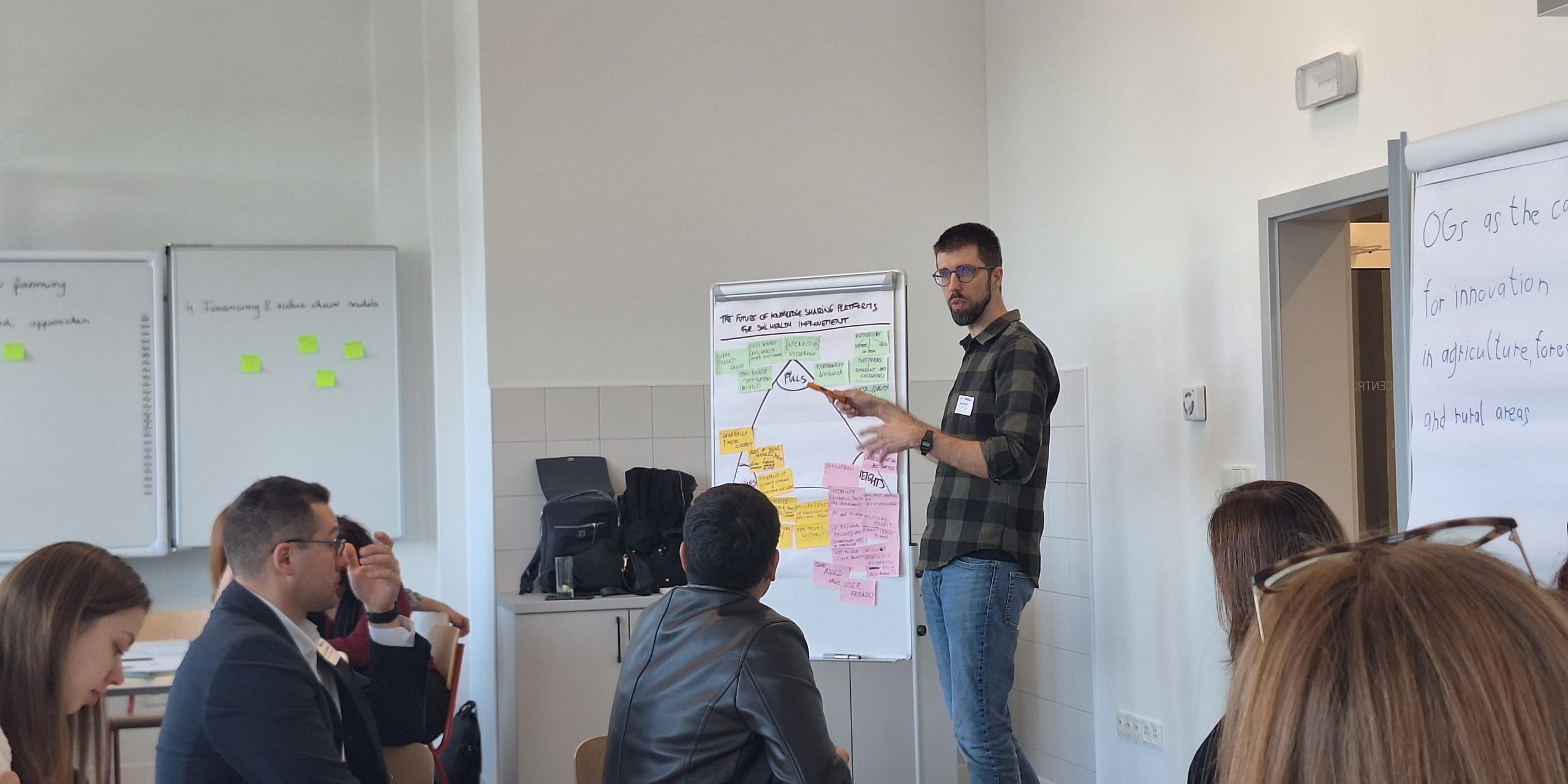Gábor Király, Adél Seprődi and Anett Gundel-Fekete took part in the international conference “Healthy Soils as the Foundation of Change”, organized in Nitra by the Slovak Bioeconomy Cluster within the framework of the ITE and Soil-X-Change project.
The aim of the event was to present domestic and international best practices to farmers, policymakers, researchers, and advisors that support the preservation and restoration of soil life. Soil biota play a key role in water retention, nutrient cycling, and the overall sustainability of agricultural systems. Accordingly, the conference focused on practical solutions, research results and regulatory directions that promote the establishment and maintenance of healthy soils.
During the poster session, nearly 30 presentations showcased the latest research and practical results in soil conservation.
The plenary session was opened by Christian Holzleitner, Head of Unit at the European Commission’s Directorate-General for Climate Action, who outlined the upcoming regulatory steps planned for the next five years to reduce agricultural carbon emissions and promote carbon sequestration. He also discussed the main elements of the forthcoming “Carbon Farming” legislation and the timeline for the introduction of carbon credits.
Participants were also introduced to one of the future reference tools for farmers, the EU-FarmBook platform. The interface will provide practice-oriented, easily understandable professional content not only for farmers, but also for advisors and other stakeholders. Its goal is to offer users practical, applicable examples of sustainable farming practices.
Following this, Margarida Ambar, representing the EU CAP Network, gave a presentation on the network’s current and future activities, as well as the status of EIP-AGRI Operational Groups across the European Union.
One of the most engaging talks was giben by a young Czech farmer who raises Angus cattle within a regenerative farming system. He shared experiences gained from workshops with Joel Salatin and Richard Perkins, and explained how he successfully implements rotational grazing, uses mobile shade structures, and operates an almost 300-day grazing system each year. Interestingly, his father continues to practice conventional farming, as it remains profitable – highlighting that economic success alone does not necessarily motivate farmers to switch to soil-friendly, regenerative practices.
The Soil-X-Change conference made it clear that soil health is not only an ecological, but also an economic issue, and that the key to a sustainable future lies in the preservation of vibrant soil life.



 HU
HU




